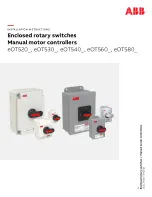Summary of Contents for bridges
Page 1: ...Cabletron Systems Networking Guide Workgroup Solutions...
Page 2: ......
Page 4: ...Notice ii...
Page 8: ...Contents vi...
Page 22: ...Review of Networking 2 10 Token Ring...
Page 62: ...Network Design 5 22 The Workgroup in the Larger Network...
Page 106: ...Token Ring 8 8 Token Ring Workgroup Design...
Page 118: ...Charts and Tables A 12 Networking Standards and Limitations...
Page 130: ...UTP to UTP Glossary 12...



































